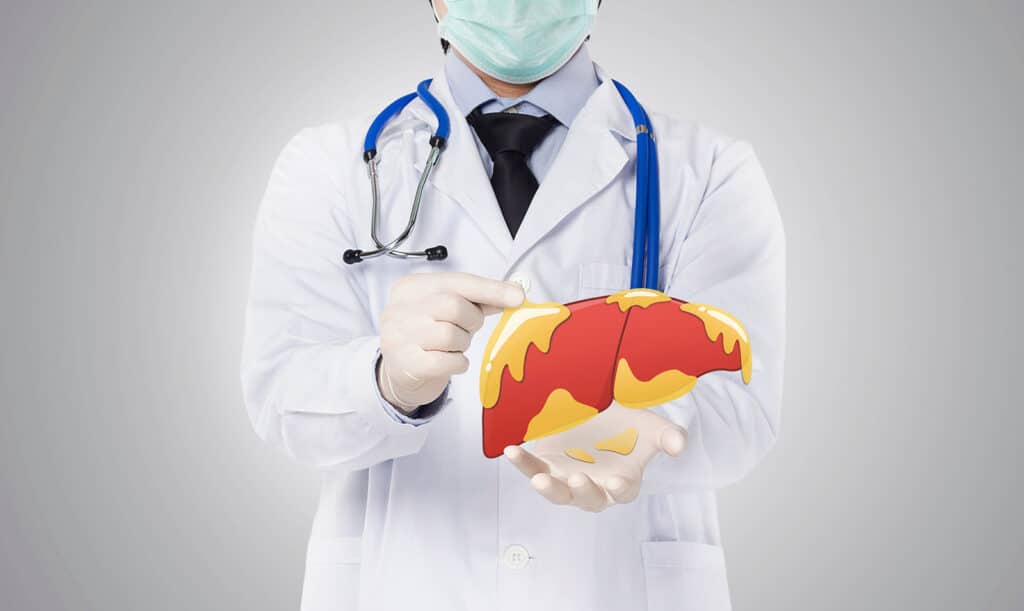Alcohol is the most widely used drug in the world, and in the United States alone, excessive alcohol use is responsible for about 88,000 deaths annually, according to the CDC. With this in mind, why do so many people drink? Why is alcohol legal at all?
The explanation is simple: The alcohol industry lobbies like no other. Every year, the alcohol industry spends $1 to $2 billion trying to convince people that drinking is fun, cool, normal, and, most importantly, harmless. While drinking can be relatively harmless for some, it can be devastating and even fatal for others.
Alcohol lowers inhibitions, making it an excellent catalyst for socialization and making friends. Unfortunately, it can also be a great catalyst for making a complete and utter fool out of yourself. Anyone who has overindulged in booze on Saturday has probably made an apology or two on Sunday.

People like to say that drunk words, sober thoughts. This old adage implies that the things people say when they’re drunk, however crass, rude, or vile, are indicative of their actual thoughts and feelings.
Is it true? Is alcohol a truth serum? The reality is that it’s not quite that simple. While alcohol can cause drunk people to blurt out things they believe but would normally repress, sometimes drunk talk is just nonsense.
Here’s an overview of what experts know about the short- and long-term effects of consuming alcohol:
Table of Contents
Short-Term Effects of Drinking Alcohol
Lowered Inhibitions
Inhibitions refer to inner impediments to free activity; in other words, they’re filters and a necessary part of a functioning society. If everyone ran around doing and saying the first thing that popped into their heads, chaos would quickly ensue. Ethanol, the psychoactive component that gets people drunk, temporarily lowers these inhibitions, which is why people often quip that drunk words are sober thoughts.
In some circumstances, the lowering of inhibitions can be a good thing. Shy people can come out of their shells a bit and be less self-conscious. On the other hand, lowering inhibitions can cause people to be rude, obnoxious, politically incorrect, and even violent.
Blacking Out
Blacking out refers to drinking to the point of short-term memory loss. The scary part about this is that people who are blackout drunk can often still function relatively normally. They can walk, engage with others and even drive or operate machinery. This temporary memory loss can be partial, but it can also be complete; it’s not unusual for someone who blacks out to remember nothing.

Many people who get blackout drunk are horrified when they learn about their previous day’s actions, and a good number of them wake up in jail.
Loss of Coordination
Being under The influence of alcohol affects GABA, one of the brain’s neurotransmitters. This slows people’s reaction times and makes them clumsy. When people drink enough, walking or even standing can be nearly impossible. It can also lead to a total system shutdown and medical emergency.
Increased Blood Pressure
Excessive alcohol consumption temporarily raises blood pressure, which isn’t that big of a deal. Repeated binge drinking, which is defined as drinking four drinks within two hours for women and five drinks within two hours for men, can lead to long-term increases in blood pressure.
Long-term high blood pressure increases the risk of stroke and other cardiovascular conditions. Additionally, alcohol contains a lot of calories. This often leads to weight gain, increasing the risk of high blood pressure.
Lower Body Temperature
Alcohol widens blood vessels, which makes more blood flow to the skin. This makes drinkers feel warm, but it’s only temporary; the extra heat dissipates quickly, and this is why drinking alcohol is not an effective way to prevent hypothermia.
Other short-term effects of alcohol consumption include:
- Blurred vision
- Vomiting
- Mood swings
- Difficulty concentrating

Long-Term Effects of Drinking Alcohol
People who drink alcohol to excess over a long period of time are at risk of the following conditions:
Alcoholic Fatty Liver Disease
When the liver processes alcohol, it also creates a toxic compound called acetaldehyde, a known carcinogen. Over time, this substance damages liver cells causes inflammation and weakens the body’s immune system. Fatty liver disease is the first stage of liver disease caused by alcohol and can eventually advance to alcoholic hepatitis and, eventually, cirrhosis.
Alcoholic Hepatitis
Alcoholic hepatitis is the second stage of liver disease, and it’s serious. Symptoms of alcoholic hepatitis include:
- Loss of appetite
- Low-grade fever
- Tenderness in the abdomen
- Nausea and vomiting
- Weakness and fatigue
Alcoholic hepatitis can be fatal, especially for those who continue to drink. People with alcoholic hepatitis risk developing cirrhosis, the final stage of liver disease.
Cirrhosis
The liver is damaged and attempts to repair itself whenever people drink to excess. This repair process causes scarring, also called fibrosis, and over time, the buildup of scar tissue impairs the liver’s ability to function properly. Some symptoms of cirrhosis include:
- Bleeding or bruising more easily
- Jaundice (yellowing of the eyes or skin)
- Confusion
- Itching
- Loss of appetite
- Swelling of the legs, ankles, or feet
- A buildup of fluid in the abdomen
Liver damage caused by cirrhosis is almost always permanent, but it can be slowed or stopped when treating the underlying cause.
Cardiomyopathy
People who drink heavily over many years can develop cardiomyopathy, a heart muscle disease that impairs its ability to pump blood through the body. The main symptoms are shortness of breath, coughing or difficulty sleeping when lying flat, pressure or discomfort in the chest, and a pounding, fluttering or rapid heartbeat.
Cardiomyopathy is generally mild at first, but it gets worse over time. Depending on the type and severity, cardiomyopathy can be life-threatening.

Alcohol Use Disorder
Alcohol use disorder, more commonly referred to as alcoholism, describes a pattern of problematic alcohol consumption. Because more than half of all Americans consume at least one drink per day, it can be difficult to determine whether someone’s drinking constitutes a clinically-significant problem. To help remedy this, the DSM-5 identifies 11 factors that constitute problem drinking:
- Drinking more or for longer than intended.
- Repeated failed attempts to stop drinking
- Spending a lot of time drinking alcohol or recovering from its effects
- Strong urges to drink
- Failing to fulfill major responsibilities (work, school, relationships, etc.)
- Drinking when it could be dangerous, such as when driving or operating machinery
- Experiencing alcohol withdrawal symptoms
- Foregoing activities one used to enjoy in order to drink
- Needing more alcohol to achieve the desired effects
- Drinking even though it’s making physical or psychological conditions worse
- Continuing to drink even though it’s damaging personal relationships
Alcoholism is considered mild, moderate, or severe depending on how many of the above factors a person experiences in a 12-month period.

What To Do if You Think You Have a Problem
1. Be Honest With Yourself
It may sound cliche, but admitting you have a problem is half the battle. Acknowledging your drinking problem will allow your brain to work on correcting it actively.
2. Don’t Bother Feeling Ashamed
Alcohol abuse is an incredibly common problem; at any given time, the United States alone has more than 14 million problem drinkers, and in all likelihood, that figure is a gross underestimate.
3. Gauge the Severity of Your Problem
Go through the DSM’s 11 factors, and answer honestly. If you decide that six or more factors apply to you, your drinking problem is likely severe. For severe cases of alcoholism, self-detoxification can be dangerous. In these cases, it’s best to get professional help. Supervised detoxification will greatly decrease your risk of dangerous side effects, and medication can significantly ease your withdrawal symptoms.
4. Don’t Be Afraid To Ask for Help
If it was easy to fix a drinking problem, it wouldn’t be much of a problem. Your odds of success are greatly increased when you have a good support system, find the right rehab and get medical advice. Addiction is both physical and mental, and both aspects need to be addressed. There are people who dedicate their lives to helping people quit drinking, and a lot of them do so because they’ve struggled with alcohol themselves. Without addiction treatment services and medical detoxification, both active alcoholism and alcohol withdrawals can be life-threatening.
5. Never Give Up
Perseverance is king. Most people who successfully quit drinking relapse at least once; it’s often part of the process. Relapsing can help people determine what their personal triggers are and provide invaluable insight on how to avoid them in the future.
FAQ
Do your true feelings come out when you are drunk?
Does drinking alcohol make you speak the truth?
Are drunk thoughts sober words?
Published on: 2022-01-31
Updated on: 2025-05-16


